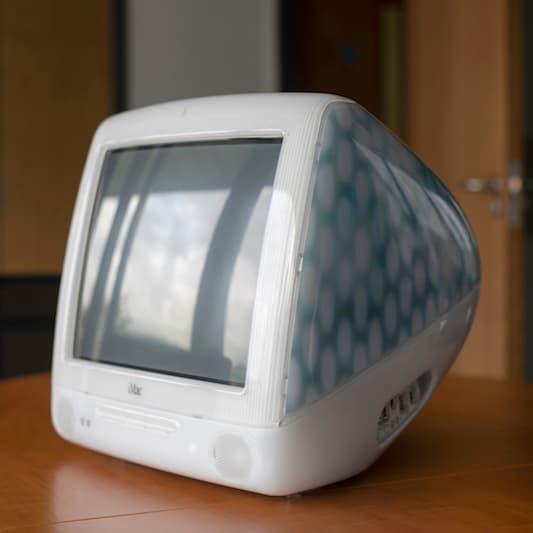How Direct Debit Helps Dave Cut Down on Admin and Get Paid in One Click
Updated on October 25, 2025 | 6 min. read
We caught up with UK tech company, SeaDog IT, and their Managing Director, Dave Cromie, to hear about his positive experience using the new Direct Debit feature.
ℹ️ COMPANY
SeaDog IT
💼 INDUSTRY
IT
📍 LOCATION
Truro, England
❌ PROBLEM
No bank transfer payment option through FreshBooks
✅ SOLUTION
FreshBooks Direct Debit
😃 RESULTS
Direct Debit now default recurring payment option
When you’ve been in business for over a decade, you know how to ask for what you want. And that’s exactly what Dave Cromie, Founder and Managing Director of SeaDog IT did.
Dave has been a FreshBooks customer since he founded SeaDog IT. But a couple of years ago he realized that some major features he needed to continue running his business efficiently in the UK weren’t available on FreshBooks. So he called the FreshBooks support team to voice his concerns. Thanks to voices like Dave’s, over the past couple of years, FreshBooks has significantly improved UK-specific features, from Direct Debit to MTD-compliance to bank connections.
We had the chance to Zoom with Dave to chat about the beaches of Cornwall, his experience with FreshBooks Direct Debit, and his favourite piece of office tech. Read more in the interview below.
How’s life in Truro, England?
Dave: Truro is the admin centre and city of Cornwall, which is right in the southwest. In the Cornish language, Cornwall is “Kernow”. We call it “Kernow”fornia, because you’ve got a fantastic stretch of coastline with a long-established surf culture and a great work-life balance. That’s why I’m here: Great beaches, people, and surf.
SeaDog IT is a very fitting name then! Can you tell me more about the work you do?
Dave: Most of SeaDog IT’s business is based on building better and more accessible websites. Accessibility compliance is a big thing for us at the moment. And with that, there’s quite a lot of routine hosting and maintenance charges.
Luckily, we’ve got an important sector of business with the local government sector. English counties are full of little subdivisions, called Parishes. Just in this part of the world, we’ve got over 200 of these councils. And if you’re a public body, UK law says you need an accessible website. A lot of our current projects involve rebuilding and improving these Council sites.
How do you use FreshBooks to keep track of all the sites you host and maintain?
Dave: Not all of our clients use Stripe. Some prefer bank transfer. For those clients, it was getting to the point where if they had paid, we could only confirm this by logging into our bank account and checking if the money was there. We would then have to log back into FreshBooks to manually mark the invoice as “paid.”
When we heard there was a beta for Direct Debit, I jumped at the chance to try it out.
Thanks for being part of the beta! Tell me more about how you use Direct Debit for recurring billing.
Dave: Having Direct Debit in place for recurring payments is a big win for us. It just cuts down on a tonne of admin. Plus, we get the payment faster too, since the money is automatically taken from the account.
In fact, we did a big project a couple of months ago for a group that’s part of our National Health Service. In theory, we can now collect that money immediately because we’ve got Direct Debit set up with them. Although we tend not to do that for these sorts of payments, it’s quite nice to know that we can. Especially since people get busy with their day jobs. Direct Debit saves admin time for us and our clients.

Do you ever use Direct Debit for one-off payments?
Dave: We usually don’t for a one-off charge. But once a customer signs up for Direct Debit, if there was some issue, like their treasurer or accounts department folded or went AWOL, we could still process any payments due. That’s reassuring.
Now that you’ve used Direct Debit for a while, any changes you’d like to see down the road?
Dave: One thing I realized when it comes to recurring invoices, is that you have to apply Direct Debit to the root of the recurring invoice. That was tricky to figure out at first. Also, it would also be nice if you could easily see at a glance which customers are set up for Direct Debit.
But in the end, Direct Debit just makes life so much simpler and it’s quite easy to sell to the client because it makes their life more straightforward as well. It’s a no-brainer for them. It’s really in our best interest to get as many clients set up on Direct Debit as possible.
You mentioned that you have a lot of local government clients, but do you also do business in the Eurozone? FreshBooks recently rolled out SEPA Direct Debit as well.
Dave: I’m looking forward to that! I’m excited about doing more business in the Eurozone. We’ve got a couple of clients in the maritime industries in Ireland and I’ll be looking at applying Direct Debit there too.
It’s always nice to set it up at the get-go. In fact, we’ve changed our terms and conditions to instruct clients to pay by BACS, credit card, or Direct Debit. And moving forward, Direct Debit will be the default. We’re trying to ignore cheques if we can.
Direct Debit aside, what other features help you work with your clients?
Dave: The Estimates feature is absolutely fantastic. We used to create proposals from scratch, especially when we would write tender documents or bids. Those documents are very detailed and often 30 or more pages long. We’ve got one coming up and I’ll work on that for a week on and off. Right now, it’s 16 pages long.
A lot of the content specific to certain tech features is similar, but Estimates are great because it allows us to duplicate key elements. This is especially helpful for the local government sector. They’re all getting similar information. That has been a massive time-savings. So, if you’re tendering for £15,000-£20,000 of business, you want to put your best foot forward. And FreshBooks Estimates does that for us.
The other feature I love is Time Tracking. I learned a long time ago that in this business I could waste my life checking how much time I’ve spent with a client. Responding to every client phone inquiry equals work and effort on our part. Time Tracking allows us to record and charge for this time accurately and fairly for both parties. Now I make it crystal clear: When someone phones us with a support call, we have a minimum charge of 15 minutes of billable time.

As SeaDog IT enters a new decade, what features are more important as your business grows and changes?
Dave: Last year we changed the business structure of SeaDog IT. It’s now a Limited Company. We’ve gone through the process of registering the company last year, which means I am now an employee.
During this time, I also brought in an accountant. The ability to add and work with your accountant in the FreshBooks account is obviously something that was important for us and a must-have.
As a fellow technophile, I can’t help but notice some vintage technology behind you. Is that an iMac G3?
Dave: It is! It’s awesome that you noticed that. I collect old hardware and I love those vintage candy-coloured iMacs from the 2000s. This one is the Blue Dalmatian iMac G3 and in great condition—it still works! It’s one of my favourite items in the office and always a great topic of conversation when clients come to visit. A little bit of the spirit of Steve Jobs lives on at SeaDog IT!







